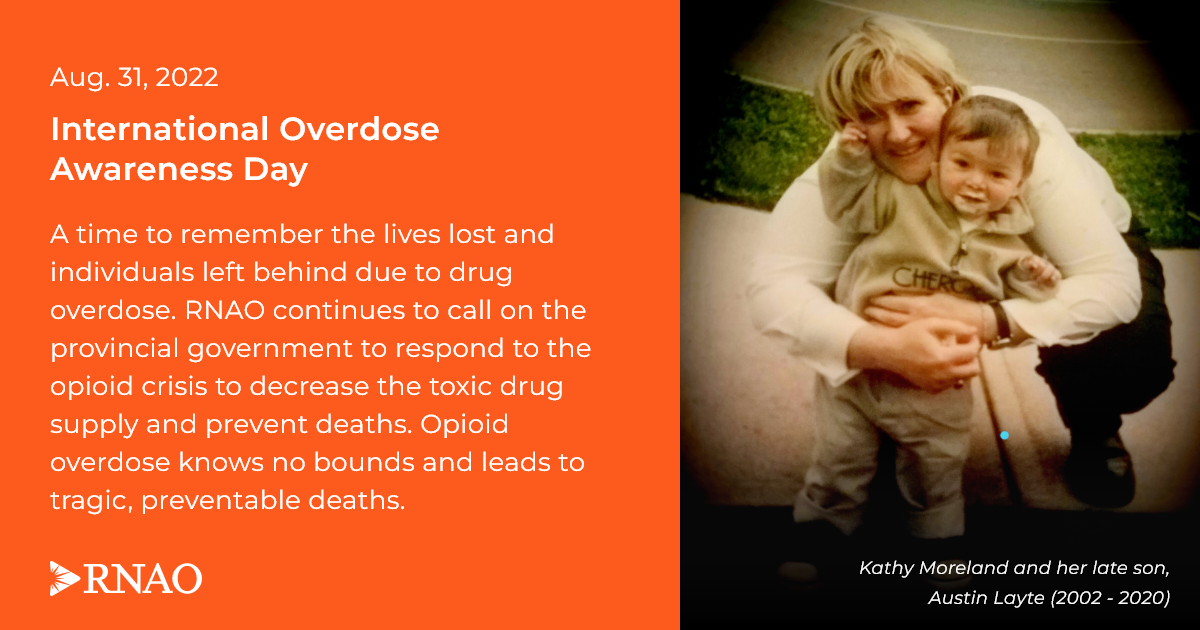Aug. 31: International Overdose Awareness Day 2022 and new In Focus

International Overdose Awareness Day (Aug. 31) is a time to remember the lives lost and individuals left behind due to drug overdose. RNAO continues to call on the provincial government to respond to the opioid crisis to decrease the toxic drug supply and prevent deaths. Opioid overdose knows no bounds and leads to tragic, preventable deaths.
There were 2,460 known opioid-related deaths in Ontario in 2020, up 57 per cent from the previous year due to the impact of the COVID-19 pandemic. Sadly, there isn’t an end in sight unless action is taken. Between January-September 2021, Public Health Ontario reported 7.9 deaths per day. This is the latest data published to date. The worsening opioid overdose crisis is a public health emergency that all levels of government need to address urgently. Learn more about the opioid overdose crisis and RNAO’s work on the issue by visiting our dedicated policy web page.
The overdose crisis knows no bounds. It has devastated urban, rural and remote lives and communities across this province. Pandemic-related public health measures have made matters worse. Left with limited or no access to health and harm reduction services and supports, and with an increasingly toxic street supply, more people are using drugs alone and are at risk of dying. Sign and share RNAO’s Action Alert to call on Premier Ford to take a harm reduction approach that includes the decriminalization of personal possession, and increased access to supervised consumption sites and a safer drug supply to save lives.
In August, RNAO released its In Focus on mental health and substance use. Explore the web page to learn more about RNAO’s advocacy and partnerships on this topic, and how you can get involved.
Nurses play an important role in helping to prevent overdose-related deaths. RNAO’s Implementing Supervised Injection Services best practice guideline supports decision-making around the most effective approaches for delivering supervised injection services to people who inject drugs. It is available as a free download to all nurses and other health-care professionals.
Finally, we know that nurses are not immune to substance use and addiction. If you are a nurse who is struggling, please visit nurseshealth.ca to learn about the Nurses’ Health Program – a free, voluntary program with customized treatment plans to help you return to practise safely.
For more information, read RNAO's media release.
